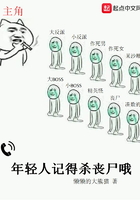"Pretty!" said Harry Lawton, scornfully, "pretty! She is a great beauty."
"And not young?"
"She is a great beauty, and better than young, because time has not touched her beauty, and you can see for yourself that it lasts."
The young man laughed. "Oh, well," he said, with a tender inflection, "I dare say that my Amy will look like that to me."
"If she doesn't you don't love her," said Lawton. "But my Eudora IS that."
"That is a queer-sounding Greek name."
"She is Greek, like her name. Such beauty never grows old. She stands on her pedestal, and time only looks at her to love her."
"I thought you were a business man as hard as nails," said the young man, wonderingly. Lawton laughed.
When Thursday came, Lawton, carefully dressed and carrying a long tissue-paper package, evidently of roses, approached the Yates house. It was late in the afternoon. There had been a warm day, and the trees were clouds of green and more bushes had blossomed.
Eudora had put on a green silk dress of her youth. The revolving fashions had made it very passable, and the fabric was as beautiful as ever.
When Lawton presented her with the roses she pinned one in the yellowed lace which draped her bodice and put the rest in a great china vase on the table. The roses were very fragrant, and immediately the whole room was possessed by them.
A tiny, insistent cry came from a corner, and Lawton and Eudora turned toward it. There stood the old wooden cradle in which Eudora had been rocked to sleep, but over the clumsy hood Eudora had tacked a fall of rich old lace and a great bow of soft pink satin.
"He is waking up," said the man, in a hushed, almost reverent voice.
Eudora nodded. She went toward the cradle, and the man followed.
She lifted the curtain of lace, and there became visible little feebly waving pink arms and hands, like tentacles of love, and a little puckered pink face which was at once ugly and divinely beautiful.
"A fine boy," said the man. The baby made a grimace at him which was hideous but lovely.
"I do believe he thinks he knows you," said Eudora, foolishly.
The baby made a little nestling motion, and its creasy eyelids dropped.
"Looks to me as if he was going to sleep again," said Lawton, in a whisper. Eudora jogged the cradle gently with her foot, and both were still. Then Eudora dropped the lace veil over the cradle again and moved softly away.
Lawton followed her. "I haven't my answer yet, Eudora," he whispered, leaning over her shoulder as she moved.
"Come into the other room," she murmured, "or we shall wake the baby." Her voice was softly excited.
Eudora led the way into the parlor, upon whose walls hung some really good portraits and whose furnishings still merited the adjective magnificent. There had been opulence in the Yates family; and in this room, which had been conserved, there was still undimmed and unfaded evidence of it. Eudora drew aside a brocade curtain and sat down on an embroidered satin sofa.
Lawton sat beside her.
"This room looks every whit as grand as it used to look to me when I was a boy," he said.
"It has hardly been opened, except to have it cleaned, since you went away," replied Eudora, "and no wear has come upon it."
"And everything was rather splendid to begin with, and has lasted. And so were you, Eudora, and you have lasted. Well, what about my answer, dear girl?"
"You have to hear something first."
Lawton laughed. "A confession?"
Eudora held her head proudly. "No, not exactly," said she. "I am not sure that I have ever had anything to confess."
"You never were sure, you proud creature."
"I am not now. I never intended to deceive you, but you were deceived. I did intend to deceive others, others who had no right to know. I do not feel that I owe them any explanation. I do owe you one, although I do not feel that I have done anything wrong.
Still, I cannot allow you to remain deceived."
"Well, what is it, dear?"
Eudora looked at him. "You remember that afternoon when you met me with the baby-carriage?"














